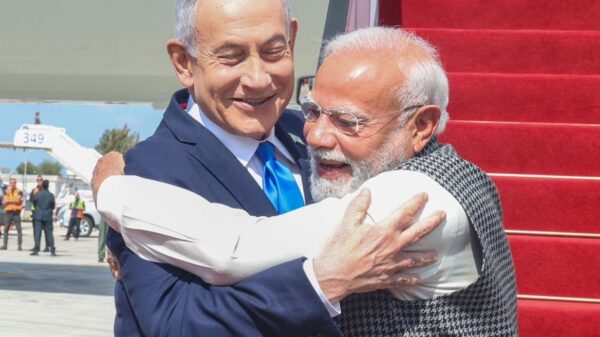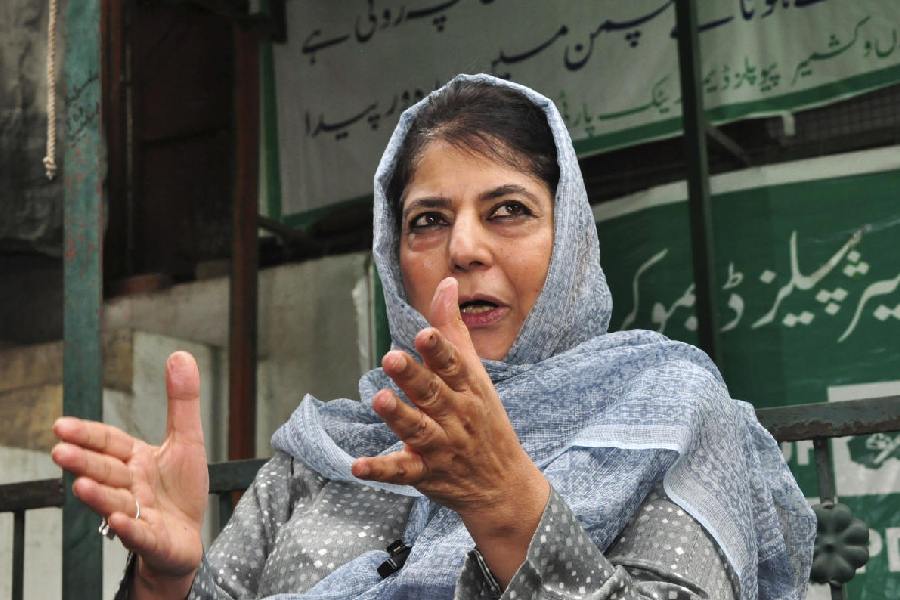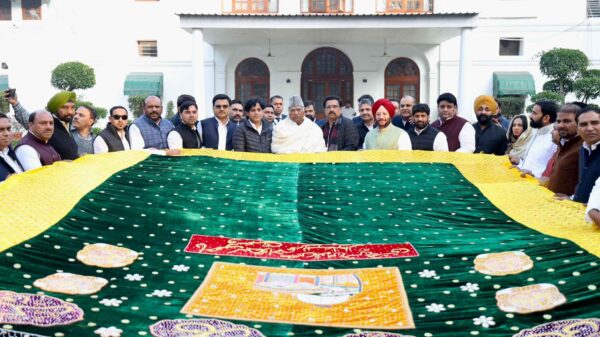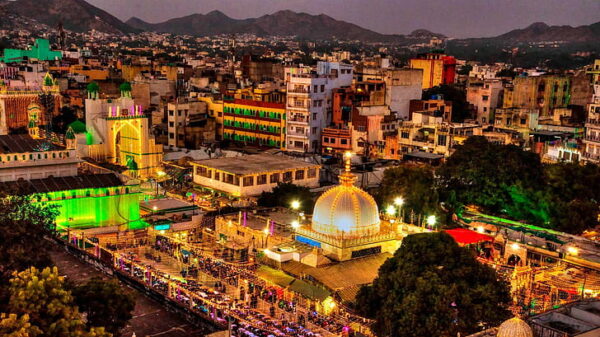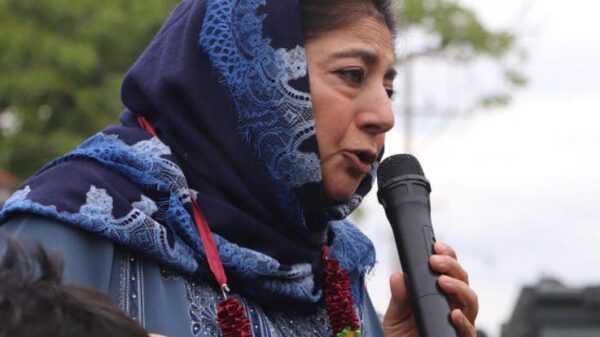A notice from a Rajasthan court to the Centre and the Archaeological Survey of India (ASI) over a petition alleging that the Ajmer Sharif Dargah stands atop a Shiva temple has sparked outrage across India.
Political leaders from Kashmir, including Mehbooba Mufti and Sajad Lone, have accused the judiciary of inciting tensions that threaten India’s communal harmony.
The civil suit, filed in September, seeks to have the Ajmer Sharif Dargah declared a “Sankat Mochan Mahadev temple,” claiming it was originally a site of Hindu worship. The court’s decision to entertain the plea and request responses from the Dargah Committee, the Ministry of Minority Affairs, and the ASI has ignited a vigorous public debate.
The next hearing is set for December 20, but the repercussions of the court’s notice are already being felt far beyond the courtroom.
Syed Sarwar Chishti, secretary of the Anjuman Syed Zadgan, a body representing the khadims (caretakers) of the Ajmer dargah, described the petition as a deliberate attempt to disturb the peace and divide communities.
The Ajmer Sharif Dargah, an 800-year-old shrine dedicated to Sufi saint Khwaja Moinuddin Chishti, has long served as a spiritual refuge for people of all faiths.
“This shrine has never discriminated—it welcomes Hindus, Muslims, Christians, Sikhs, everyone. What message are we sending when even such places become battlegrounds for divisive politics?” he asked.
Chishti also referenced the Places of Worship (Special Provisions) Act of 1991, which prohibits changes to the status of religious sites as they existed on August 15, 1947. “The law is clear, but beyond the law, there’s also humanity. Why are we so intent on erasing the symbols of unity that this country is built upon?” he questioned.
The controversy has elicited sharp reactions from political leaders across the spectrum. Mehbooba Mufti, former Chief Minister of Jammu and Kashmir, described the petition as indicative of a broader agenda to marginalize minority communities.
“The judiciary is being weaponized to question the existence of every sacred space associated with Muslims. First Gyanvapi, now Ajmer. What’s next? This isn’t just about a court case—it’s about eroding the pluralism that defines India,” Mufti said.
Mufti criticized the court’s decision, claiming it undermines the Supreme Court’s earlier ruling to maintain the status quo at religious sites as they existed in 1947.
“Innocuous rulings have opened Pandora’s box, sparking a contentious debate about minority religious places,” she posted on X (formerly Twitter). She also warned of escalating violence, drawing parallels to the communal tensions seen during India’s Partition in 1947.
“First, mosques, and now shrines like Ajmer Sharif are being targeted, which could lead to further bloodshed,” Mufti said, holding the judiciary accountable for fueling unrest.
Her remarks come against the backdrop of similar disputes at the Gyanvapi mosque in Varanasi and the Shahi Jama Masjid in Sambhal.
Echoing similar sentiments, Jammu and Kashmir Peoples Conference (JKPC) president Sajad Lone condemned the notice as a sign of misplaced priorities in the digital age.
“In an era of Artificial Intelligence and rapid technological advancements, our obsession with finding hidden temples under revered Muslim shrines is baffling,” Lone quipped.
He expressed dismay at how such civil suits are celebrated by a segment of the population.
“I was recently in Dubai and had the opportunity to marvel at the architectural magnificence of the temples built there. Dubai has truly become an oasis of tolerance and mutual respect. It’s remarkable how people from every nationality coexist in such an orderly manner,” he said.
He further claimed that in India, “electoral victories have come at a cost, which has left this country soulless.”
In Ajmer, residents are already bracing for what comes next. The dargah has always been a bustling hub, filled with the aroma of incense and the chatter of devotees. But now, a different kind of tension lingers in the air.
“I’ve been coming here since childhood,” said Ramesh Yadav, a shopkeeper selling devotional items outside the shrine. “This place has always been about peace. It doesn’t matter whether you pray to Allah or Shiva—everyone comes here with hope. Why are they trying to ruin that?” Khwaja Moinuddin Chishti, a revered Sufi saint from Persia, chose Ajmer as his permanent abode.
During the Mughal era, Emperor Akbar undertook annual pilgrimages to Ajmer, showcasing his deep reverence for the shrine. Akbar, along with Shah Jahan, contributed to the shrine’s legacy by constructing mosques within its complex.






